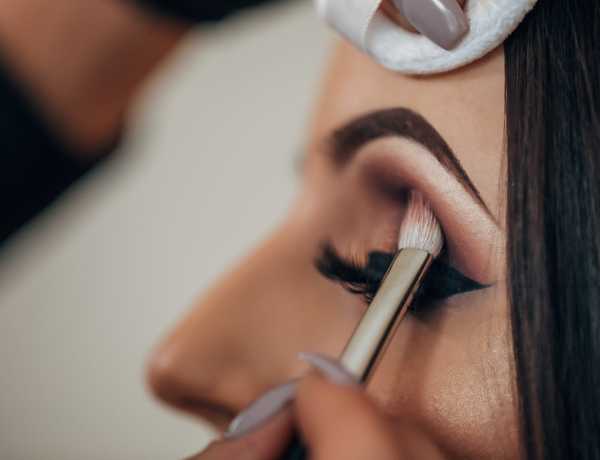When we think about cosmetics and makeup, we generally focus on the effects they can have on our appearance. However, there's another aspect we should consider: the potential impact on our health. One of the less-known but significant concerns is the presence of per- and polyfluoroalkyl substances, or PFAS, in these products.
PFAS are a group of man-made chemicals that have been in use since the 1940s. Known for their durability and resistance to water, oil, and heat, they've found their way into a wide range of consumer products, from non-stick cookware to water-resistant clothing. However, these same characteristics that make them useful also make them persist in the environment and accumulate in the human body, earning them the nickname "forever chemicals."

Cosmetics might seem an unlikely home for these industrial chemicals, but their properties make them appealing to manufacturers. PFAS can provide :
all desirable traits in a world where long-lasting, waterproof makeup is in high demand.
Unfortunately, their presence in cosmetics isn't always clearly marked. Many products might not explicitly list PFAS in their ingredients, but may instead use related compounds or cite vague terms like "fluoro" or "perfluoro."
While further research is needed to fully understand the health implications of PFAS, these chemicals have been associated with various health issues. Some studies link PFAS exposure to:
When PFAS are in makeup, the risk is two-fold. Not only is there potential for these substances to be absorbed through the skin, but they can also be unintentionally ingested or inhaled, particularly in the case of lipstick or powder products.
So, how can you continue to enjoy cosmetics without increasing your exposure to PFAS? Here are some tips:
Look out for ingredients with "fluoro" or "perfluoro." While not all PFAS chemicals are named this way, it's a good starting point.
Some health and environmental advocacy groups maintain databases that rate the safety of cosmetic products. The Environmental Working Group's Skin Deep database is one such resource.
More and more cosmetic brands are pledging to avoid using PFAS in their products. Supporting these brands sends a message to the industry that consumers value safety.
Ultimately, we need stronger regulations that require transparency from cosmetic companies and limit the use of potentially harmful ingredients. Advocacy can range from supporting organizations that are pushing for these changes to contacting your representatives directly.
If you believe that exposure to PFAS in makeup or any other product has led to an illness, a lawyer can play a crucial role in helping you seek justice and compensation. Here's how:
First and foremost, a lawyer with experience in environmental law or product liability can help you understand if you have a valid legal claim. They will evaluate the facts of your case, the nature of your illness, the evidence of PFAS exposure, and any existing scientific research linking PFAS to your type of illness.
If you decide to proceed with a legal claim, your lawyer will help gather and organize the necessary evidence. This might include medical records, proof of purchase or use of the makeup product, and any other evidence that links your illness to PFAS exposure.
Your lawyer will guide you through the legal process, represent you in negotiations or in court, and advocate for your rights and interests. They can help you navigate complex legal procedures and make sure you meet any necessary deadlines.
If your case is successful, you may be entitled to compensation for your medical expenses, lost wages, pain and suffering, and other damages. Your lawyer will help calculate a fair amount and negotiate with the responsible parties or their insurers.
In some cases, if a number of people have been similarly affected by the same product, it may be advisable to join a class-action PFAS lawsuit. Your mass tort lawyer can advise you on whether this is a good option for your situation.
Remember, each case is unique, and the success of a lawsuit will depend on various factors, including the specifics of your situation, the available evidence, and the current state of the law and scientific research regarding PFAS. Therefore, if you believe you've been harmed by exposure to PFAS, it's crucial to consult with a lawyer to understand your legal options.
While the thought of "forever chemicals" in our cosmetics can be disconcerting, awareness is the first step towards safer choices. By staying informed, reading labels, and demanding transparency and regulation, we can both protect our health and push the industry towards safer practices.